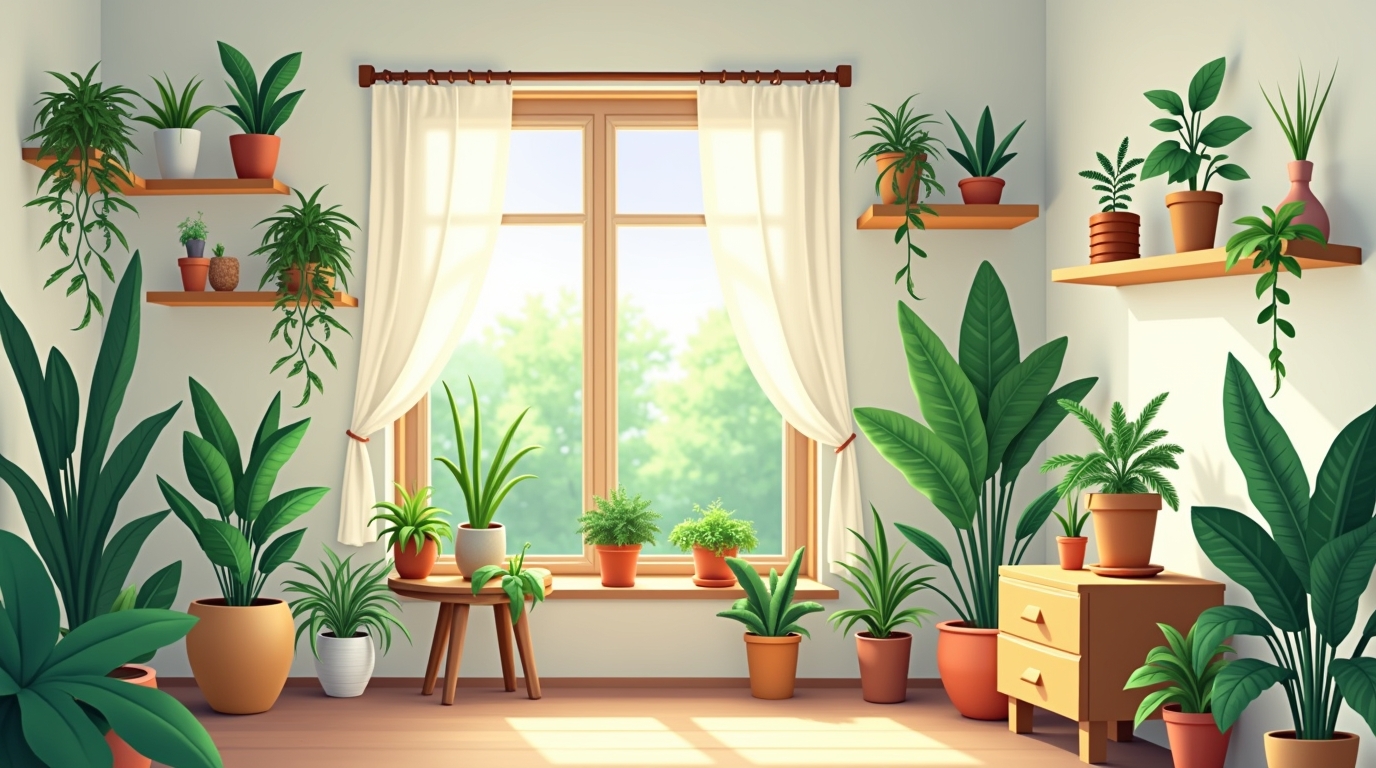Living in a small apartment doesn’t mean you have to give up on greenery. Indoor plants not only enhance your space aesthetically—they also improve air quality, reduce stress, and create a peaceful atmosphere. With the right care and plant choices, even the tiniest apartment can feel like a mini jungle.
Here’s how to take care of indoor plants in a small apartment—no balcony or big windows required.
1. Choose Plants That Thrive Indoors
Not all plants are suitable for indoor life. Look for varieties that can tolerate low light, limited humidity, and confined pots.
Great options for small apartments:
- Snake Plant (Sansevieria): Extremely low maintenance
- Pothos: Grows quickly, ideal for hanging
- ZZ Plant: Thrives in low light and neglect
- Spider Plant: Purifies air and grows well in small pots
- Peace Lily: Low light, flowers indoors
- Succulents: Perfect for window sills with bright indirect light
Pick plants based on the lighting conditions in your home.
2. Understand Your Apartment’s Light Conditions
Before buying plants, observe where sunlight enters your space.
Light categories:
- Bright indirect light: Near south or east-facing windows
- Low light: Rooms with limited natural light
- Direct sunlight: Close to unobstructed windows
If light is limited, consider grow lights—affordable and effective for dark spaces.
3. Use Vertical Space and Creative Containers
When floor space is limited, go vertical.
Ideas:
- Wall-mounted planters or shelves
- Hanging planters near windows
- Plant stands or tiered trays
- Mason jars, recycled cans, or baskets as pots
Just ensure containers have drainage holes or layer with pebbles to avoid root rot.
4. Water Wisely
Overwatering is the most common mistake. Each plant has different needs, so research watering schedules.
Tips:
- Stick your finger 1 inch into the soil—if dry, it’s time to water
- Use room-temperature water
- Drain excess water to prevent root rot
- Group plants with similar watering needs
Keep a small watering can nearby for easy maintenance.
5. Monitor Humidity and Temperature
Apartments with heating or air conditioning can dry out the air. Some plants need extra moisture.
Solutions:
- Mist your plants regularly
- Place a tray of water near plant clusters
- Use a small humidifier
- Keep plants away from heating vents and drafty windows
Most houseplants prefer temperatures between 60–75°F (15–24°C).
6. Feed Them Occasionally
Even indoor plants need nutrients to thrive.
- Use a balanced liquid houseplant fertilizer every 4–6 weeks
- Reduce feeding in winter when growth slows
- Follow label instructions carefully to avoid overfeeding
You can also use organic compost or worm castings in small amounts.
7. Keep Them Clean and Pest-Free
Dust can block sunlight and pests can sneak in from the outdoors or new plants.
Care tips:
- Wipe leaves with a damp cloth once a month
- Check for pests like gnats, spider mites, or aphids
- Isolate new plants for a week before placing them with others
For pests, try natural remedies like neem oil or insecticidal soap.
8. Rotate and Repot as Needed
Turn your plants every few weeks so all sides get light.
- Repot every 1–2 years as roots outgrow their containers
- Use fresh potting soil and clean pots
- Don’t jump to a much larger pot—it can hold too much moisture
Look for signs like roots poking out or slowed growth to know when it’s time.
9. Add Plants to Unexpected Places
Even the smallest apartments have room for a few leafy friends.
- Add plants to your bathroom (if there’s some light)
- Place a small cactus or succulent on your desk
- Try a trailing vine on top of your bookshelf
- Use a windowsill herb garden for both beauty and functionality
Be creative—plants can thrive anywhere with a little planning.
Final Thoughts: Green Space, Happy Place
You don’t need a yard—or even a balcony—to enjoy the beauty and benefits of indoor plants. With the right care, tools, and mindset, your small apartment can become a thriving green retreat.
Start small, learn what each plant likes, and enjoy the process of bringing nature indoors.
